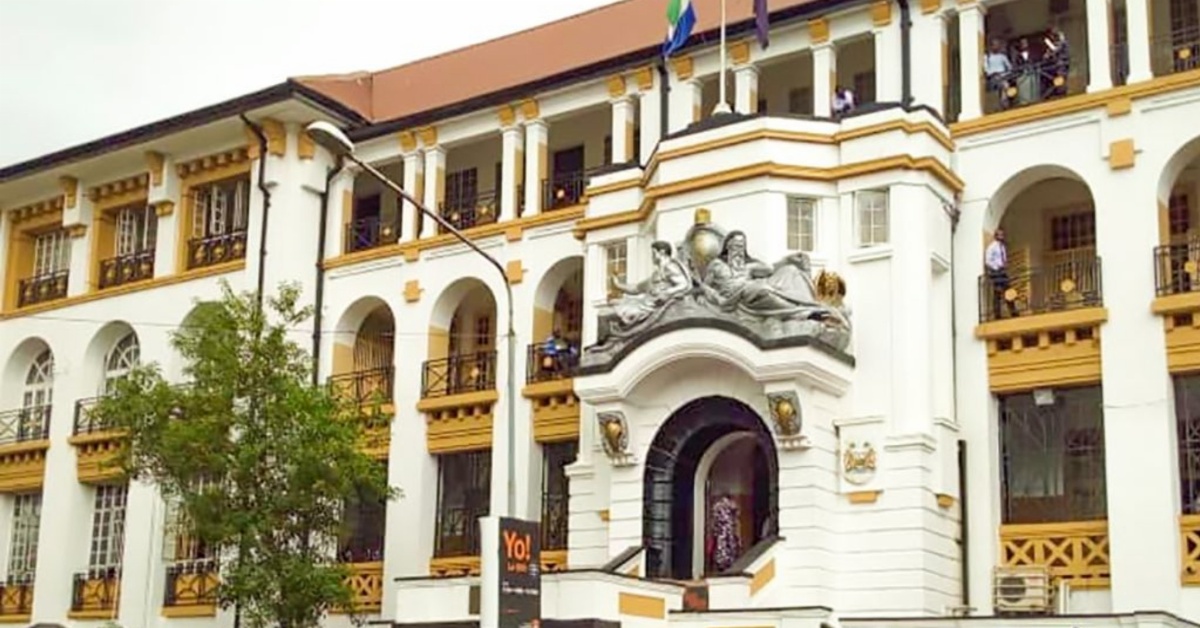Fighting corruption in our judicial apparatus is imperative in today’s Sierra Leone. Corruption continues to top public agendas immediately after our independence. This has led to growing awareness of its myriad pernicious effects and the need for measures to eradicate it.
The justice system plays a vital role in this regard: it is responsible for the detection, prosecution, and punishment of corrupt acts. Efficient and timely action by the justice system, in turn, helps uphold the rule of law and contributes to the effectiveness of our democratic mechanisms and satisfactory market performance. Conversely, ineffective action on the part of our law enforcement agencies keeps on undermining public confidence in government institutions, creating obstacles to good governance, and distorting our economy.
It is therefore easy to grasp the gravity of the situation when our justice system itself is well riddled with corruption. Not only is it unable to fulfill its duty to control corrupt deviations in the exercise of power, but it is also guilty of the same practices it is supposed to punish should they occur in other State institutions. The panorama is bleaker still when, of all our agencies comprising the justice system, it is the court system that is corrupt, given the latter’s prominent role as the branch of government charged with conflict resolution and determining rights and obligations in the framework of the Constitution and the law. The panorama becomes even more critical and disturbing, if that is possible, when Magistrates and Judges engage in corrupt practices in the course of legal proceedings to investigate and punish corruption cases, especially in cases involving individuals in positions of significant political, economic, and social power.
Judicial corruption in Sierra Leone, then, must not be tolerated. It must be confronted purposefully and vigorously if the Anticorruption Commission is to realize its goals. As a political model, the democratic, constitutional rule of law requires the separation and complementarity of the branches of government, a system of checks and balances, and effective reciprocal controls.
The judicial branch is vested with the duty to exercise control over our political power to uphold the rule of law and safeguard fundamental individual rights. For this reason, it must be independent and impartial.
Sierra Leone’s corruption keeps on destroying the independence and impartiality of our judiciary. Magistrates and Judges who acquiesce to influence peddling or accept bribes cannot make legal decisions free from undue interference in the fair application of the law. Nor can Magistrates and Judges demand accountability from abusive and corrupt public officials if they engage in corruption or form part of an illegitimate power structure.
But how to confront the pervasive phenomenon of judicial corruption? What should be done, for example, about its enduring and complex political ramifications? How to approach its various manifestations, ranging from minor irregularities that allow the parties access to confidential information about a proceeding to demands for, or acceptance of, large bribes in exchange for judgments that flout the law in high-profile cases (corruption among high-level previous and current government officials, for example)? What forms does corruption take and, most importantly, what causes it? What factors give rise to corruption in the administration of justice apparatus and what is their nature (personal or structural, episodic or ingrained, ethical or juridical)?
Moreover, what institutional mechanisms have been designed by our Parliament to combat Judicial corruption? Are they effective? What are their strengths and weaknesses? What concrete successes and challenges have been observed in their application? What measures, even general ones (such as those about transparency and access to information) are currently under-utilized and which ones have demonstrated the greatest potential? What are the best practices in this area? What role does civil society, and the media in particular, play in all of this? In sum, what lessons can be drawn from the Sierra Leone experience fighting judicial corruption, as observed from a comparative regional standpoint?


 Post a comment
Post a comment









Comment(s)
Disclaimer: Comments expressed here do not reflect the opinions of Sierraloaded or any employee thereof.
Be the first to comment